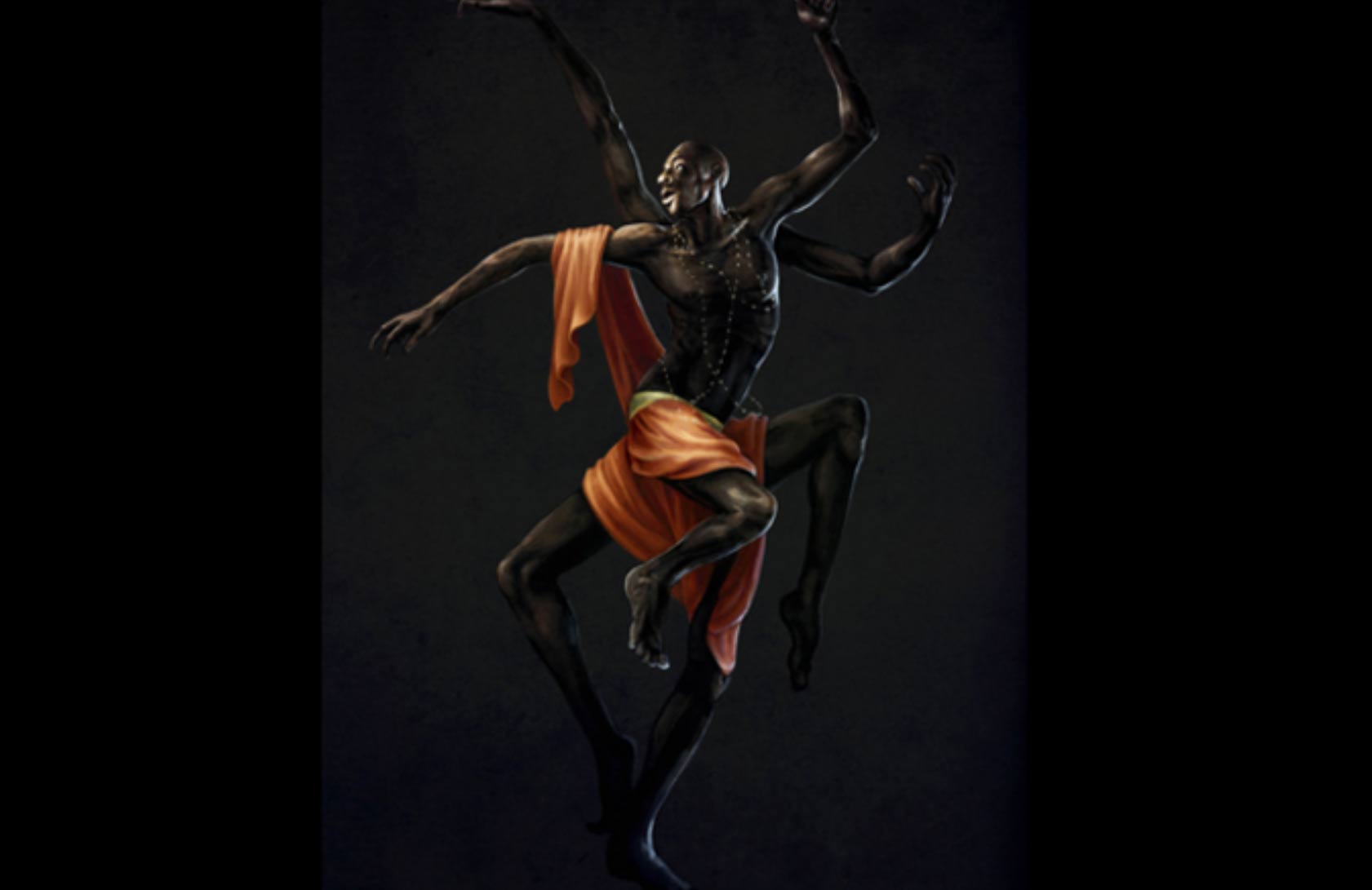Oral poetry, just like oral literature, is usually a rendition performed in traditional societies. Therefore, oral poetry is a poetic composition by people who are ingrained in the rudimentary and pristine milieu of their societies. This poetic composition usually holds the tradition beliefs, societal norms and history of the people and it possesses certain rhythmic patterns in which a performer manipulates to bring forth an aesthetically driven form.
Oral poetry in Africa has been an artistic compendium of the beliefs and culture of the African people. There are many forms of oral poetry in the African society such as the invocative poetry, didactic poetry, praise poetry, special occasion poetry, lyrics, funeral poetry, ritual poetry, satirical poetry and epic poetry. Here, i limit my examination to the invocative form of oral poetry.
Invocative poetry is usually a series of laudatory epithets; a praise form of poetry that appreciates the quality or captures the essence of a human, superhuman or an inanimate object ranging from towns, plants, animals, rivers to events. It is used to celebrate achievements and it is one of the most common and established oral poetic forms in Africa. Invocative poetry further divulges into panegyrics and self-praise.
In panegyrics, there is emphasis on a person of royal or aristocratic status: a chief, leading vassal, a hero or someone who has had a personal achievement in war or hunting. Integral topraise poems are "praise names" (oriki in Yoruba) which form the basis of praise poetry. Theymay be attributed to groups, events, objects or a singular person. These names are highly laudatory as well as rallying, renewing the mobilization for a common purpose and mustering strength for a fresh effort. For instance: when trying to eulogise or invoke the Yoruba god Esu, the ‘god of mischief’, praise names as such read:
“... Esu confuser of men.
The owner of twenty slaves in sacrificing,
So that Esu may not confuse him.
Esu confused the newly married wife.
When she stole the cowries from the sacred shrine of oya
...Esu, lover of dogs.
If a goat gets lost in ogbe – don’t ask me.
Do you think I am a thief of goats?
If a huge sheep is missing from ogbe – don’t ask me.
Do you think I am a thief of sheep?
If any fowl gets lost in ogbe – dont ask me.
Do you think I am a thief of birds?
But if a dog is missing from ogbe – ask me!
You will find me eating Esu’s sacrifice in a wooden bowl...! (Akporobaro 2006: 330)
These praise names may occur frequently within a larger part of a praise poem. In Yoruba panegyrics for instance, individuals have several praise names either given to them by parents, friends or drummers which could arise from appearance, accumulation of wealth, number of wives and what the heroic poet of Basotho, Daniel Kunene, calls “Eulogies of associative experience”. Therefore, an individual’s oriki could emanate from the person’s lineage history, the conquests of their ancestors, the prominent good or heroic features that characterise the person’s ancestral line or immediate family. These single names allow for a collection of names that when recited together, reads like a poem.

Praise poetry, in some parts of Africa, may attribute to inanimate objects, but in West Africa, praises are addressed to the supernatural. Despite this, the most frequent praise names are attributed to humans, especially the ones of repute and high esteem. In some cases, according to (Finnegan 2012: 115), praise poets may include “derogatory remarks, veiled or otherwise, or give advice as well as praise”. Therefore, some praise poems show the tyrannical or overpowering character of a particular individual – more commonly a king. It may show that as much as they (peasants) are being trampled upon by this king, they wouldn’t dare usurp or question him.
In more modern times, mostly in traditional weddings or naming ceremonies, we see performers of private enterprise: drummers, artist and poets wandering through these ceremonies or even through the streets to sing praises by their own initiative. This foregrounds the artistic ingenuity as an indispensable resource of oral literature, because artists have to meet up with the high expectations of their audience and this can only be achieved by spontaneity, creativity, use of memory and improvisation. They must be equipped with an unusual creative process. They choose anybody who they know is wealthy or looks wealthy, and shower praises on them from their repertoire as artistes in the hope that they get monetary benefits from their laudatory expressions. From this, the profitable, rallying and exciting ability of praise poems is established.
In formal state conditions, kings had one or more specialists officially attached to them who frequently commemorate the achievements and qualities of the king. These bards sometimes eulogise with the use of drums. Chiefs often had their own bards in some cases, but the bards attached to them are usually less skilled, less erudite and less specialized unlike that of the king. Among the Hausa, the amount of musical accompaniment for a praise poem is determined by the grade of the ruler in the society; in lower cadres, gongs may be used while special instruments are used to praise kings and leading vassals (Smith 1957: 28).
Unlike self praises, panegyrics are usually formalized and less variable. It has the tendency to be handed down in a received way so that there are only few changes which could be in stanzas or word order; pauses and or stress. However, the content is usually preserved and institutionalized, placing an emphasis on conformity and adherence to tradition.
Self praises are simply praises that are created and performed by a persona on and about himself or herself. Schapera(1965:4-5) reports that among the Tswana, individuals including chiefs, compose special poems about themselves to mark special occasions of initiation, conquests and ascension to the throne. Schapera(1965: 2-5) further claims that before the advent of Western culture in the area, the task of composing such poems was imposed uponall boys going through initiation rites. Each one of the boys was expected to compose an oration in praise of himself and to be able to repeat it with sufficient fluency during the rites. Sanders and Damane (1975) give similar instances among the Sotho, where chiefs and important people compose their own praise songs, which they imposed on their followers and professional artists to sing at special festivals (Alembi 2002:40).

Individuals use self praises to sum up their character and achievements. Among the Sotho ofLesotho, boys are required to compose praise for themselves while undergoing an initiation into manhood. They are required to sing their deeds, courage and bravery and tell poetic tales of how the aforementioned have bailed them out at a time of war, brawl or hunt. Synonymous to this is among the Igbo people of Nigeria where when taking a title, individuals may have to sing series of self praises to validate their deeds and prospective deeds. Creativity and rhetoric then become a mental examination that determines the progress or failure of a young man into a higher hierarchy. It becomes the ideals of action or manhood.
It should be noted that in some cases, dirges may fall under the category of praise poems. Poets or bards laud the deceased for the legacies, accomplishments and achievements they had when they were alive. From this foregoing, it can be established that praise poems cut across most other poetic forms such as in narrative poetry where praises are incorporated to extol the hero and in ritual poetry where the extra-terrestrial may also be exalted.
Furthermore, praise poems have places in wedding ceremonies where the bride or the groom is praised either by friends or by specialists. Given the fact that august guests who probably do not know the circumstance of either the bride or the groom are usually present in these ceremonies, praises do not only help reveal their lineages but also validate their different fortes; delineating their portraits to the various guests and going deep down into the distinctive identities of the subjects.
In ascension into office, praise poems are used by people who want to express their loyalty or allegiance to the office. Self praises are used in similar occasions; when an individual dedicates himself to a people or a higher office. Therefore, the social significance of praise poem is clear: to cement status by content, richness of praise, size of performers and publicity of the poem recitation. It also serves as a medium of communicating public opinion– as said earlier that some praises may be riddled with satires or derogatory metaphors to underline the negative conduct of a ruler. Invocative poetry then publicises, flatters and ultimately preserves history (function as historical replicas).
Invocative poetry ultimately helps to record events, celebrate achievements, express praise and recollect the history of a people and, in the words of Finnegan (2012: 143), “still flourishes, in however modified a form, and the ancient praises still bring inspiration and a formal mode of literary expression to modern artists.”
Works Cited
Alembi, E. 2002. The construction of the Abanyole perceptions on Death Through Oral Funeral Poetry.Retrieved Feb. 6, 2021,from https://helda.helsinki.fi/bitstream/handle/10138/19377/theconst.pdf?sequence=2
Akporobaro, F.B, 2012. Introduction to African Oral Literature. Lagos: Princeton Publishing.
Damane M. & Sanders P. eds. 1974. Lithoko: Sotho praise-poems. Oxford: Clarendon Press.
Finnegan, R. 2012. Oral Literature in Africa. Cambridge: Open Book Publishers CIC Ltd.
Finnegan, R. 1977. Oral Poetry: Its nature, significance and social context. Eugene: Wipf and Stock Publishers
Mapanje, J. & Landeg, W. 1983. Oral Poetry from Afrika. Essex: Addison-Wesley Longman. Retrieved Jul. 6, 2018, from http:/africanpoems.wpengine.com/protest-satire/the-wifewho-refuses-to-feed-the-visitor/
Mutarovsky, J. 1999. Literary Structures and Standards. Zagreb: Matrix Croatia
Okpewho, I. 1985. The Heritage of African Poetry: An anthology of written and oral poetry.Essex: Longman.
Piskac, Davor 2007: The Aesthetic function in Oral Literature
Pointer, F.H. 2013. African Oral Epic Poetry: Praising the deeds of a mythic hero. New York:The Edwin Mellen Press.
Schapera, I. 1965. Praise Poems of Tswana Chiefs. Oxford: Clarendon Press
Join the Oriire Community
Become a free member to get the monthly roundup, unlock more challenges, comment on articles and bookmark your favourites





















Share
0 Comments